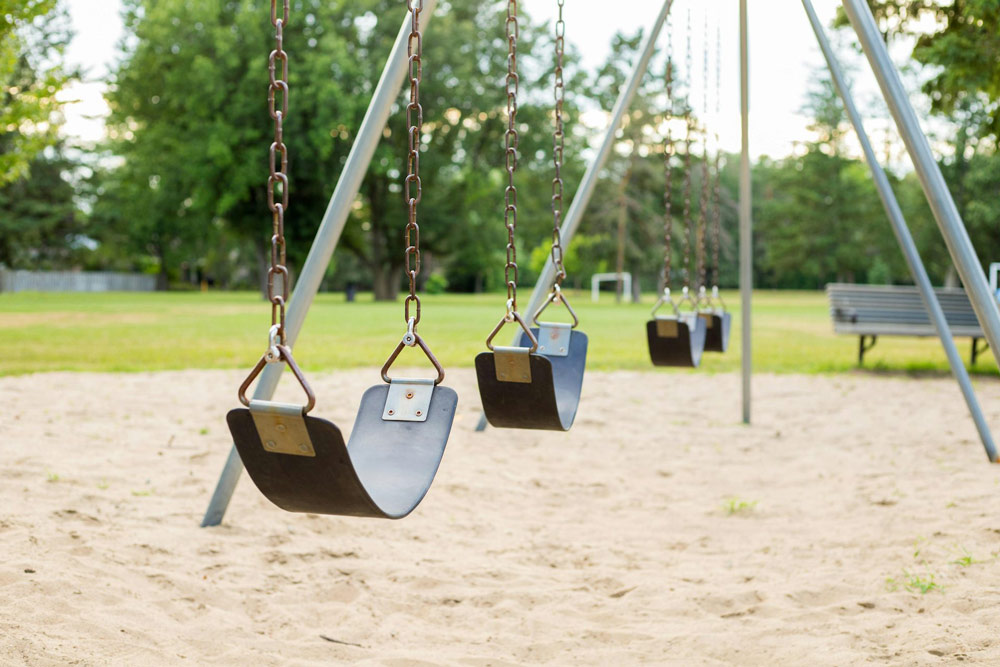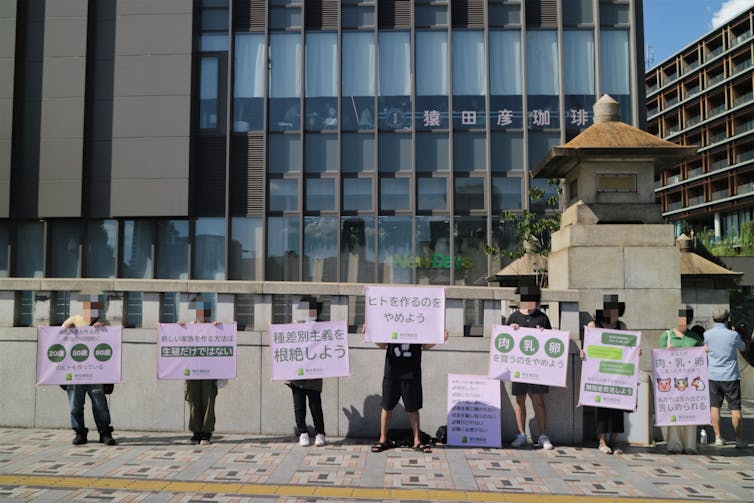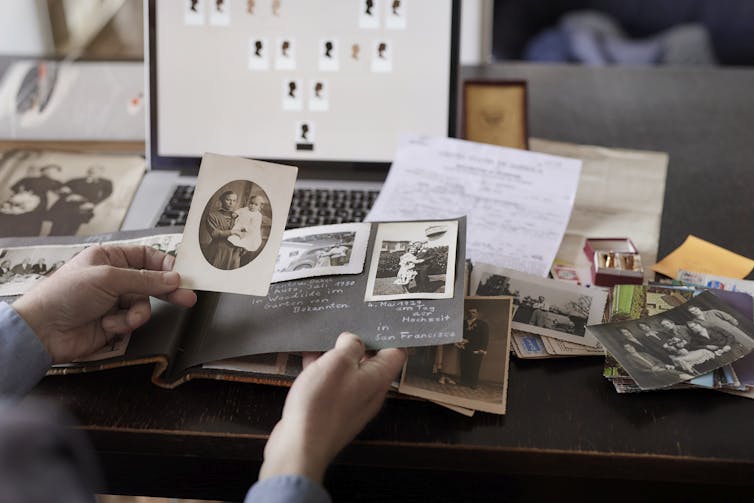
By Jack Jiang
In the first few days after Donald Trump’s election in November 2024, purchases of emergency contraceptives spiked, with two companies reporting sales about 1,000% higher than the preceding week. Meanwhile, Planned Parenthood reported a 760% increase in appointments for IUDs the day after his win.
Many Americans are fearful that the incoming administration could further curb reproductive rights, 2½ years after the U.S. Supreme Court overturned the constitutional right to abortion. Today, roughly one-third of states ban the procedure almost entirely or after the first 6 weeks of pregnancy – before many women and girls realize that they’re pregnant.
Several nominees for Trump’s second administration oppose abortion rights. But some of his allies have suggested that not having children is itself a moral failing.
In a 2019 speech, for example, Vice President-elect JD Vance said that people “become more attached to their communities, to their families, to their country because they have children.” In 2021, he tweeted that low birth rates “have made many elites sociopaths.” During a Trump rally in 2024, Arkansas Gov. Sarah Huckabee Sanders said her children are a “permanent reminder of what’s important” and “keep me humble.” Kamala Harris – who has two stepchildren, but no biological children – “doesn’t have anything keeping her humble,” Sanders said.
Beyond politics, many people hold similar views. People from New York Times columnist Ross Douthat to Pope Francis have described decreasing birth rates as a sign of self-centered cultures.
Plenty of childless people want children but can’t have them. Other people may not want kids for personal or economic reasons. But advocates for “anti-natalism,” a relatively new social movement, argue giving birth is immoral. The anti-natalists I’ve interviewed push back against the idea that childlessness is selfishness. They believe they are protecting their unborn children, not neglecting them: that childlessness is the ethical choice.

Asagi Hozumi
Then and now
In the 1970s, the word “anti-natalism” referred to policies designed to reduce a country’s fertility rate, such as the campaign to sterilize millions of men in India during the state of emergency from 1975-1977. Such policies were designed to address concerns of overpopulation and poverty, spurred in part by growing environmental awareness.
In the following decades, niche environmental movements such as the Voluntary Human Extinction Movement were influenced by this trend and encouraged people to stop having children for the sake of the planet.
However, anti-natalism first came to denote a moral philosophy in 2006, when two key books were published: “The Art of Guillotining Procreators,” by Belgian activist Théophile de Giraud, and “Better Never to Have Been,” by South African philosopher David Benatar.
Rather than emphasize the damage new humans cause to the planet, this new anti-natalism emphasizes the harm life brings to the unborn. By not having children, these philosophers argue, people help the unborn avoid the inherent painfulness of life. The unborn cannot experience life’s pleasures, either – but as Benatar writes, “those who never exist cannot be deprived.”
Anti-natalism took off among a collection of online communities but reached a broader audience in 2019, when Raphael Samuel, a Mumbai businessman, attempted to sue his parents for giving birth to him without his consent. The stunt sparked public conversation about the ethics of procreation and prompted the formation of the activist group Childfree India.
Various anti-natalist groups have formed across the globe since, including a subreddit with about 230,000 members. Stop Having Kids, founded in the U.S. in March 2021, has hosted demonstrations spanning Canada, Bangladesh and Poland. That same year, Asagi Hozumi and Yuichi Furuno created Antinatalism Japan and have been holding frequent outreach events in Tokyo since 2023. In early 2024, an Israeli activist named Nimrod Harel planned a European tour to promote anti-natalism in more than 30 cities.
Stake in the future
Criticism of anti-natalists comes in many different flavors. Most frequently, however, anti-natalists complain that they are called selfish: that critics assume they are prioritizing their own freedom over raising the next generation. “I never understood people who say ‘not having children is selfish,’” one anti-natalist wrote in their community group chat. “Name me one reason you are (having children) for the child’s sake.”
Deciding not to have children can be motivated by a desire for freedom and self-actualization, but it doesn’t have to be. Often, among the anti-natalist online communities I study, the point of not having children is precisely to protect them.
Shyama, an anti-natalist from Bengaluru, India, used to teach low-income children. After witnessing the effects of the COVID-19 pandemic on her students, she hopes to pivot toward a career in mental health research for children and adolescents.
She speaks about her own children, but only in hypothetical terms, having vowed not to have kids. When she reads about bad news, she feels relieved that her children never have to suffer like that. She refuses birth for their sake. When her friends accused her of challenging other people’s right to have a child, she told me that “this was less unfair than bringing another life into this world and imposing an entire lifetime of inevitable suffering on it.”
Some critics respond that having children gives parents a stake in the future. Philosopher Samuel Scheffler, for instance, argues that having children personalizes the future, anchoring parents to a community that extends beyond their own lifetimes.

Uwe Krejci/DigitalVision via Getty Images
Anti-natalists, however, refuse to equate children with a stake in the future. Anugraha Kumar, a Marxist anti-natalist, told me that most leaders within the Communist Party of India are childless. Without needing to support a family, they are free to fight for a better future.
Secularizing birth
Throughout history, catastrophic events have provoked reflection about the ethics of reproduction. After the Holocaust and the atomic bombing of Hiroshima and Nagasaki, Jewish and Japanese writers documented some survivors’ apprehensions about giving birth. According to anthropologist Jade Sasser, anxieties about climate change, the economy and political turmoil have fueled current questions about whether to have a family.
But I have argued that this narrative downplays deeper shifts in how many modern societies understand birth.
Traditionally, birth was often considered entwined with religion: something predestined, or even shaped by divine intervention. In many of the societies where anti-natalist groups have formed, however, parents have far more control over whether to give birth, when and to whom – and birth is viewed in a more secular way.
Birth is less often viewed as part of divine order but often likened to a lottery: a game of chance where parents roll the die and their children suffer the consequences. Japanese anti-natalists, for example, sometimes compare their birth to “gachapon”: vending machines that spit out a toy at random each time someone inserts money.
Parents choose to “spin the wheel of life,” an anti-natalist from Philadelphia told me, without knowing what kind of life they will create. Without a way to acquire consent from the unborn, he added, “This is not a risk that is ours to take.”
![]()
Jack Jiang is a doctoral student in Anthropology at The New School.





























JimboXYZ says
With a global population of well over 8 billion by now, the human race is in no danger of extinction beyond the wars that have been started. At what point does $ 405+ million for 2 new schools in Flagler county for a declining student enrollment just become unnecessary tax increase for taxpayers. The schools are adequate facilities and just need to be maintained. The Sex Industries of Healthcare, Pornography & whatever else have it’s costs too. Parenting has become a nightmare, can’t discipline a child without that becoming borderline criminal for child abuse, the rampant inflation becoming borderline child neglect. Everyone has their own solution that can live with. Enjoy the graphs, what I’ve been saying about the crime over the last several years that children are the worst offenders by age group is not even debatable as fact. It’s not even close by a long shot. I wonder how the victims break down by age grouping ? I’m certain juvenile crime has it’s share of victims in the same age group, then again , how many elderly are the victims of juvenile age related violent crime ? No wonder elderly adults have become “Get Off My Lawn” types for limiting their victimization at least on their own properties, in their own residential ?
https://www.statista.com/statistics/424137/prevalence-rate-of-violent-crime-in-the-us-by-age/
Ed P says
Is this really an issue? If abortion is a personal choice, so is the decision not to have children. None of our business. We devolve trying to create movements or identify nebulous phony concepts.
However;
Elon is balancing the scale with 12 children.
(Sarcasm)
Al says
There are many reasons for not having children and it is a personal choice. Not having children for political reasons seems like that child is better off not having screwballs for parents.
My son has no children because he says most of the girls he knows are not trustworthy enough to raise a child. My daughter was a test pilot for the Air Force and didn’t want to leave a child without 2 parents.
Like I said it’s a personal choice but if the boogeyman is chasing you then the child is better off without a nutjob to raise them.
Laurel says
As usual, the extreme ends of the spectrum are tedious.
It was always interesting to me that most of my friends, while growing up, never had children. It was like it another 1969 blip in time. Peer pressure was nonexistent, not that it would matter to me.
I was not married, and didn’t want to be married. To have a child meant, to me, that I would have a whole, new, fresh brain to form. Yikes! That is one hell of a responsibility! I didn’t feel I was up to it. Meanwhile, I watched the (a little bit older) women around me get all swoony over baby clothes. Really? That, and the fact that I’m not a kid person. I’ve only seen, maybe, two babies that were cute. No, I don’t want to hold them. So, if that’s the way I am, why should I bring one into the world? That’s not logical.
At one place I worked, there was a co-worker who actually got mad, and told me I was “selfish” for not having children! That really puzzled me as she only had one child. Did that mean that only having one child, she was more selfish than someone who had two, or three? Again, a lack of logic.
During my supposed productive years, I went to the same gynecologist. Each year, he would ask me “When are you going to get married and have some kids?” He had two. Then, one year, after he and his wife had their third child, he surprised me and said “People should only replace themselves.” Okay, then. I’m sparing someone who had replaced themself with two kids. You’re welcome.
John Wallace says
Kids suck! I’m not ashamed to think that way. I’m almost 50 & managed to not have any. I was able to move anywhere, do anything, have any job I want, work when I want….yeah selfish, ok I can accept that.